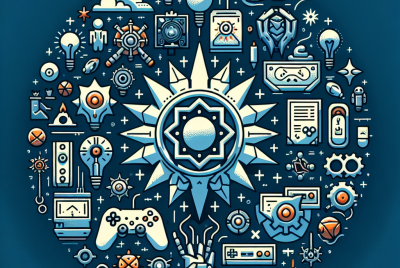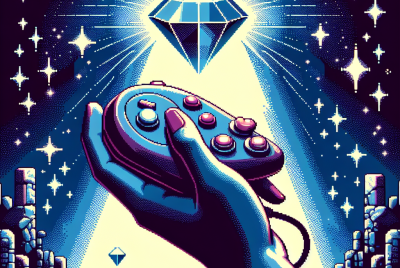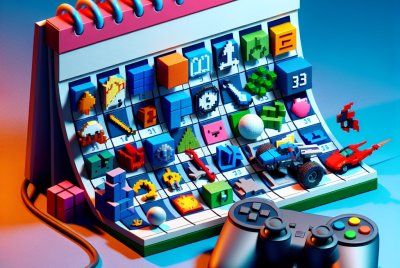Retro vs. Modern: What to Consider Before Buying a Gaming Console
Understanding the Landscape of Gaming Consoles
The Rise of Retro Consoles
Nostalgia Factor
Retro gaming consoles often evoke feelings of nostalgia. Many players grew up with systems like the NES, Sega Genesis, or Atari. The simplicity of games from this era, combined with their pixel art and chiptune music, creates a charming atmosphere that modern games sometimes lack. Retro consoles offer a peek into gaming history, allowing you to enjoy titles that laid the foundation for the industry.
Availability of Retro Games
With the resurgence of interest in retro gaming, many classic games are being re-released on various platforms or as part of collections on modern consoles. However, the original cartridges and discs can sometimes be expensive or hard to find. It’s essential to consider your access to games when looking at a retro console—will you mainly rely on digital marketplaces, or do you have the means to hunt down physical copies?
Build Quality and Design
Retro consoles often have a unique aesthetic, reflecting the technology of their time. Some players appreciate the charm of bulky designs and colorful buttons. However, the durability of these systems can vary. Older consoles may require maintenance, such as cleaning cartridges or repairing hardware, which could be a consideration for those less interested in technical repairs.
The Allure of Modern Consoles
Advanced Technology
Modern consoles like the PlayStation 5, Xbox Series X, and Nintendo Switch leverage cutting-edge technology. Gaming graphics are incredibly advanced, offering lifelike visuals and immersive experiences that were unimaginable in the past. The processing power and storage capabilities of current systems allow for more complex games with expansive worlds and intricate storytelling, which can be a major draw for gamers looking for the latest experiences.
Online Features and Services
Many modern consoles come with integrated online services that provide access to multiplayer gaming, cloud saves, and a vast library of games. Subscriptions such as Xbox Game Pass or PlayStation Plus offer tremendous value, giving players access to hundreds of titles for a reasonable monthly fee. If you favor social gaming or want to access diverse game libraries, this aspect could sway your decision toward a modern console.
Game Variety and Quality
Modern gaming platforms often boast a more extensive library of games, including advancements in genres that have evolved significantly since the retro era. You can find everything from massive open-world adventures to high-intensity shooters, indie titles, and narrative-driven experiences. This variety can be appealing to a wide range of players.
Factors to Consider Before Making the Purchase
Budget Constraints
Initial Costs
When considering both retro and modern consoles, your budget will play a crucial role. Retro consoles can often be cheaper upfront, but the cost of games and potential repairs should be considered. On the other hand, modern consoles typically come with a higher initial price tag but might offer more value through digital storefronts and subscription services.
Value Over Time
Think about how long you plan to use your console and the associated costs over time. Retro games may be less expensive over the long haul, but sourcing them can be tricky. Modern consoles may require regular purchases of new games or subscriptions, which can add up quickly.
Gaming Preferences
Your gaming habits may heavily influence your decision. If you lean toward single-player experiences and story-driven games, modern consoles may deliver more options. For those who enjoy couch co-op gaming, some retro systems have classic multiplayer titles that can be great for gatherings.
Genres of Interest
Consider the types of games you enjoy the most. Are you into platformers, RPGs, or sports titles? Retro consoles house classics in various genres, while modern consoles can feature modern iterations of those genres along with entirely new experiences. You may want to research the available game libraries before you make a choice.
Social Considerations
Community and Playgroup
The gaming community around each console can affect your experience. Modern consoles often have large online communities where players meet, share tips, and communicate. If you enjoy online interaction, that could be a significant advantage of modern systems. However, many retro players build tight-knit communities, often celebrating the culture of nostalgic gaming together.
Local vs. Online Play
Consider where and how you play. If your friends mostly play on modern systems, it might lean the decision in that direction. However, if you relish local multiplayer and have friends who also appreciate retro gaming, you may find joy in gathering around a vintage console.
Technical Considerations
Hardware Maintenance
Retro consoles can sometimes require more maintenance than modern systems. Issues like faulty power supplies or the need for cleaning cartridges can become tedious. If you’re not comfortable with such repairs, modern consoles, which come with warranties and customer support, could offer peace of mind.
Future-proofing
Modern consoles are designed to last several years, with regular updates and support from developers. Issues like backward compatibility might not exist in retro consoles; thus, you might find that if you purchase a retro system today, it may not get the same attention in coming years.
User Experience and Usability
Learning Curves
Game Controls
Modern gaming consoles often come with more complex controllers featuring multiple buttons and triggers. For some, this can create a steeper learning curve compared to the simplicity of a retro controller. If you're bringing gaming to a younger audience or someone new to gaming, the straightforward controls of a retro console might prove more accessible.
Interface and Navigation
The user interfaces of modern consoles tend to be more intuitive, with streamlined navigation and access to various features. Retro consoles, while simple and quick to boot, may lack the additional features that provide a more seamless experience, like integrated online stores and library management.
Accessibility Features
Inclusion in Modern Systems
Modern consoles often come equipped with numerous accessibility features, including options for hearing impaired players or those who may have difficulty with manual controls. If you or someone you game with has specific needs, this could be an important factor in your decision-making.
Community Support for Retro Gaming
While most retro consoles lack built-in accessibility features, many communities are dedicated to modifying these consoles or creating software that can make them more user-friendly for everyone.
Compatibility and Backward Compatibility
Game Libraries
Original Game Formats
When purchasing a retro console, consider whether you want authentic hardware or the ability to buy digitally remastered versions. Retro systems may limit you primarily to original formats, enhancing the charm but possibly restricting availability.
Backward Compatibility in Modern Consoles
Modern systems usually have backward compatibility, allowing you to play older titles from previous generations. This can provide more value from your purchase and increase your game library significantly without requiring you to purchase additional consoles.
Future Developments
Innovation in Modern Systems
The gaming industry is always evolving, with developers regularly releasing new hardware and software features. If you choose a modern console, you might expect new games or updates that enhance performance over time. Retro consoles, while nostalgic, often have a finite life span in terms of support and game releases.
Emerging Technologies
As technology advances, new features such as virtual reality and improved graphics capabilities become increasingly popular in the modern gaming sphere. If these trends excite you, consider how they might influence your gaming experience down the road.
In Summary
When choosing between a retro and modern gaming console, consider factors such as nostalgia, game availability, budget, personal preferences, maintenance, and community aspects. Reflect on your gaming habits and what kind of experience you’re looking for.




